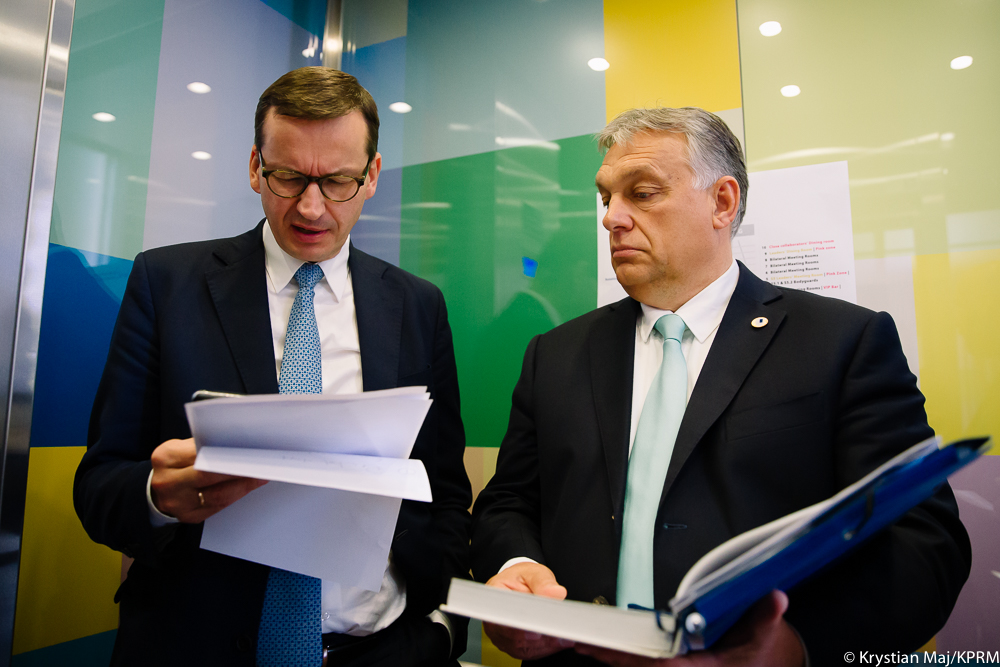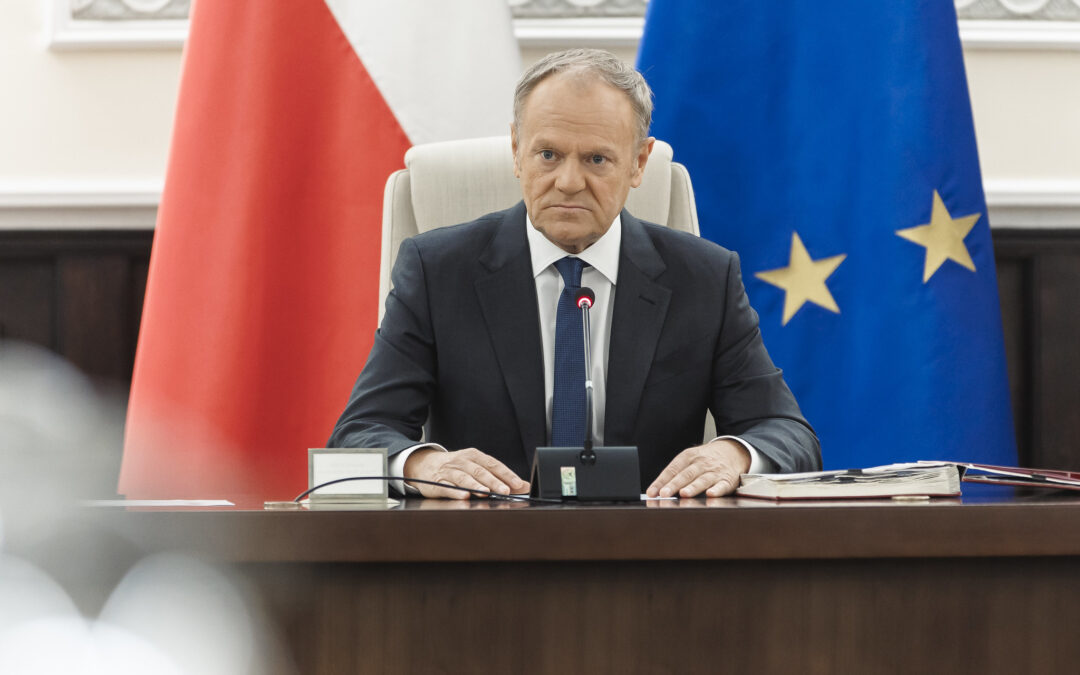Following a marathon five-day summit, Poland has emerged with what it claims is an “unprecedented” share of the European Union’s budget for the years 2021-2027 as well as key concessions, including on green energy transition.
Yet despite claims by the Polish and Hungarian prime ministers that the disbursement of funds will not be linked to compliance with rule-of-law standards, the final agreement anticipates that a mechanism of conditionality will soon be created.
A generous helping
The EU has forged an agreement for a total deal of €1.82 trillion, made up of €1.074 trillion for the bloc’s seven-year budget, known as the Multi-annual Financial Framework (MFF), and €750 billion borrowed to counter the economic fallout of the coronavirus pandemic.
#EUCO conclusions on the #NextGenerationEU recovery package and the #EUbudget for 2021-2027
👉 https://t.co/0TRghmsIMH pic.twitter.com/hPeVfmw1Li
— EU Council Press (@EUCouncilPress) July 21, 2020
According to an agreement clinched in the early hours of Tuesday morning, Poland’s share of the budget has been set at €124 billion, and up to €160 billion with loans, which Prime Minister Mateusz Morawiecki has called an “unprecedented” amount.
While the entire budget was cut by 22% in relation to the original proposal, Poland’s share of the funds was only reduced by 3%, noted Morawiecki at a press conference on Tuesday morning.
The prime minister called the agreement “a great success from both the financial side and the entire architecture of supervision of budgetary funds”.
Morawiecki claimed that Poland negotiated an additional €600 million “in the final hours” of discussions. Viktor Orbán, Hungary’s prime minister and an ally of Poland’s conservative government, said that Morawiecki “went into the room and came out with 600 million euro”.
🙂👏👏👏 pic.twitter.com/PazNn38gv7
— Michał Dworczyk (@michaldworczyk) July 21, 2020
“Poland has become one of the most privileged member states within the EU’s financial framework”, Robert Grzeszczak, a professor of EU law at the University of Warsaw, told Notes from Poland today in response to the budget announcement.
As an example, Grzeszczak notes that Poland is receiving one of the highest shares of the coronavirus recovery package, despite being expected to weather the crisis relatively well.
The distribution of the coronavirus funds has been based largely on states’ economies before the pandemic, rather than the anticipated impact of the economic fallout.
As the budget was heavily cut relative to original proposals, one of the biggest losers was the Just Energy Transition Fund, a flagship environmental project to help wean EU member countries off fossil fuels.
Poland was meant to be the largest beneficiary under the EU budget proposal in May, but the size of the fund has now been cut from €40 billion to €10 billion, reports Business Insider.
Significantly, however, the final deal dropped earlier demands for coal-dependent Poland to sign up to EU climate goals in exchange for access to green transition funds.
Poland is the only member state not to have signed up to the EU’s target of climate neutrality by 2050. Under today’s budget agreement, it can still access 50% of the funds intended to help it meet that goal despite still not having formally committed to it.
Rule of law
The EU has also watered down the initial proposal to allow the withholding of funds in response to violations of the rule of law.
Poland and Hungary, which have both been at odds with the EU over democratic standards, have strongly opposed such a measure, arguing that it would be “arbitrary” and used for “political” purposes.
Today’s agreement does not include any explicit mechanism for tying in the rule of law, but mentions “a regime of conditionality to protect the budget” and that “the Commission will propose measures in case of breaches for adoption by the Council by qualified majority.”
“For the first time in the EU’s history, respect for the rule of law will be a decisive criterion for budget spending,” said Charles Michel, president of the European Council, in a statement on Tuesday morning.
Poland’s prime minister, however, also claimed success, announcing that “there is no direct link in the agreement between the rule of law and budgetary resources”.
The difference in understandings stems from confusion over how the decision on a rule-of-law mechanism would be made, and which body or bodies would be responsible: whether, as Poland’s government claims, unanimity at the European Council will be required, or whether qualified majority voting in the Council of the EU is sufficient.
One would think 5 days is enough to clarify certain things but then… #RuleOfLaw #Poland pic.twitter.com/aJCQVpXuHB
— Zosia Wanat (@zosiawanat) July 21, 2020
“The deal states that funds will be conditional on the rule of law; however, mechanisms to execute this are yet to be proposed by the European Commission and accepted by a qualified majority in the Council.”
My preliminary assessment (thread below) re #ruleoflaw aspects of these conclusions
Health warning: I don’t have a PhD on how to interpret EUCO conclusions so it may well be that my take is erroneous
For other takes see e.g. @JMorijn @JohnOBrennan2 @ADimitrovs @DanielHegedus82 https://t.co/Yuex9pmadz
— Laurent Pech (@ProfPech) July 21, 2020
Main image credit: Krystian Maj/KPRM/Flickr (under CC BY-NC-ND 2.0)

Maria Wilczek is deputy editor of Notes from Poland. She is a regular writer for The Times, The Economist and Al Jazeera English, and has also featured in Foreign Policy, Politico Europe, The Spectator and Gazeta Wyborcza.




















